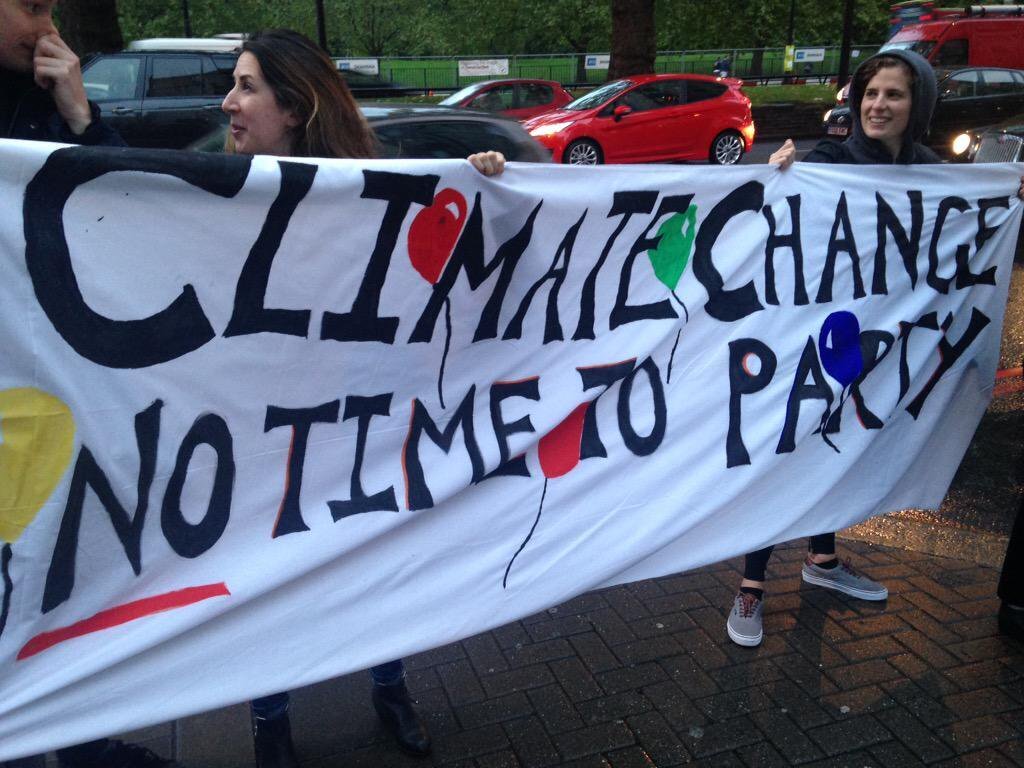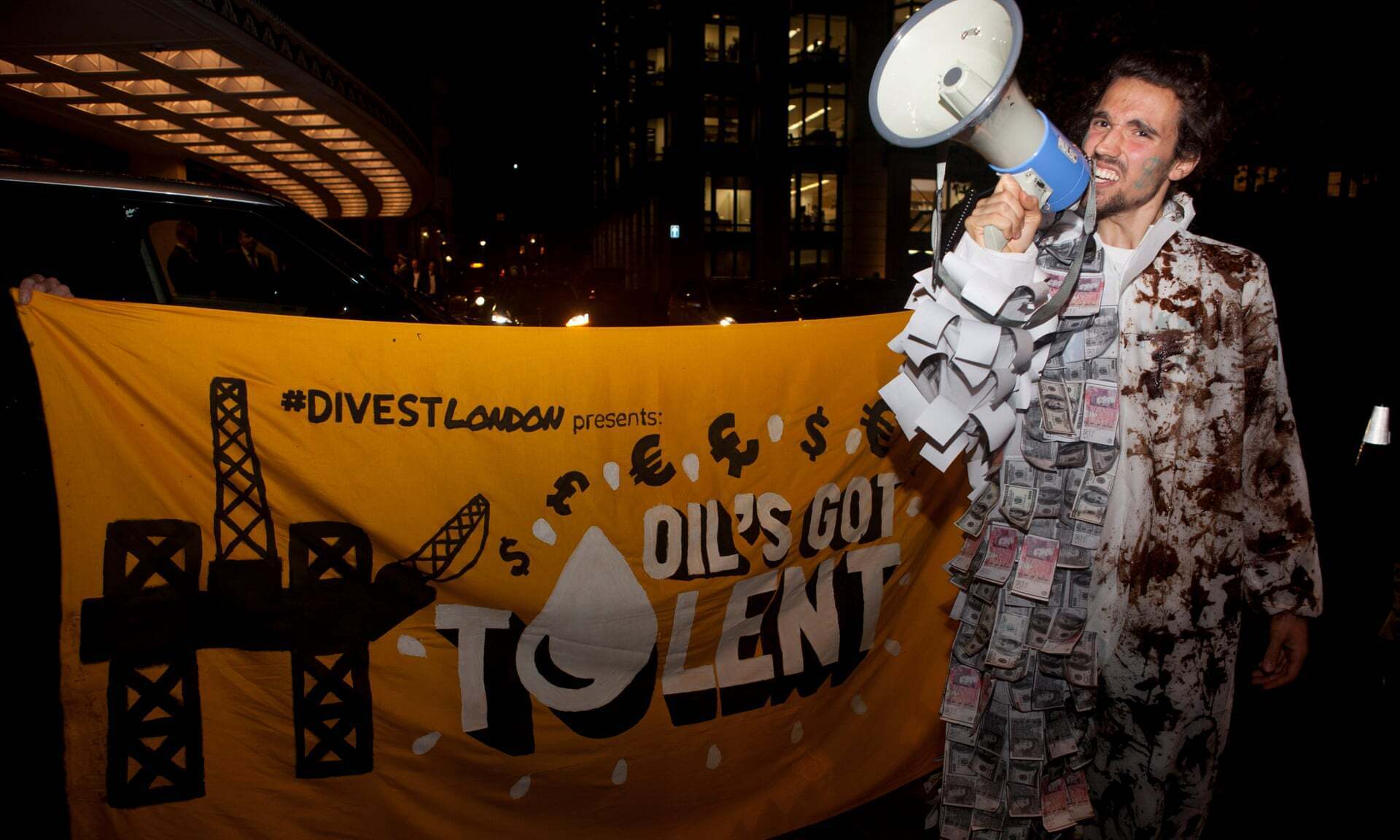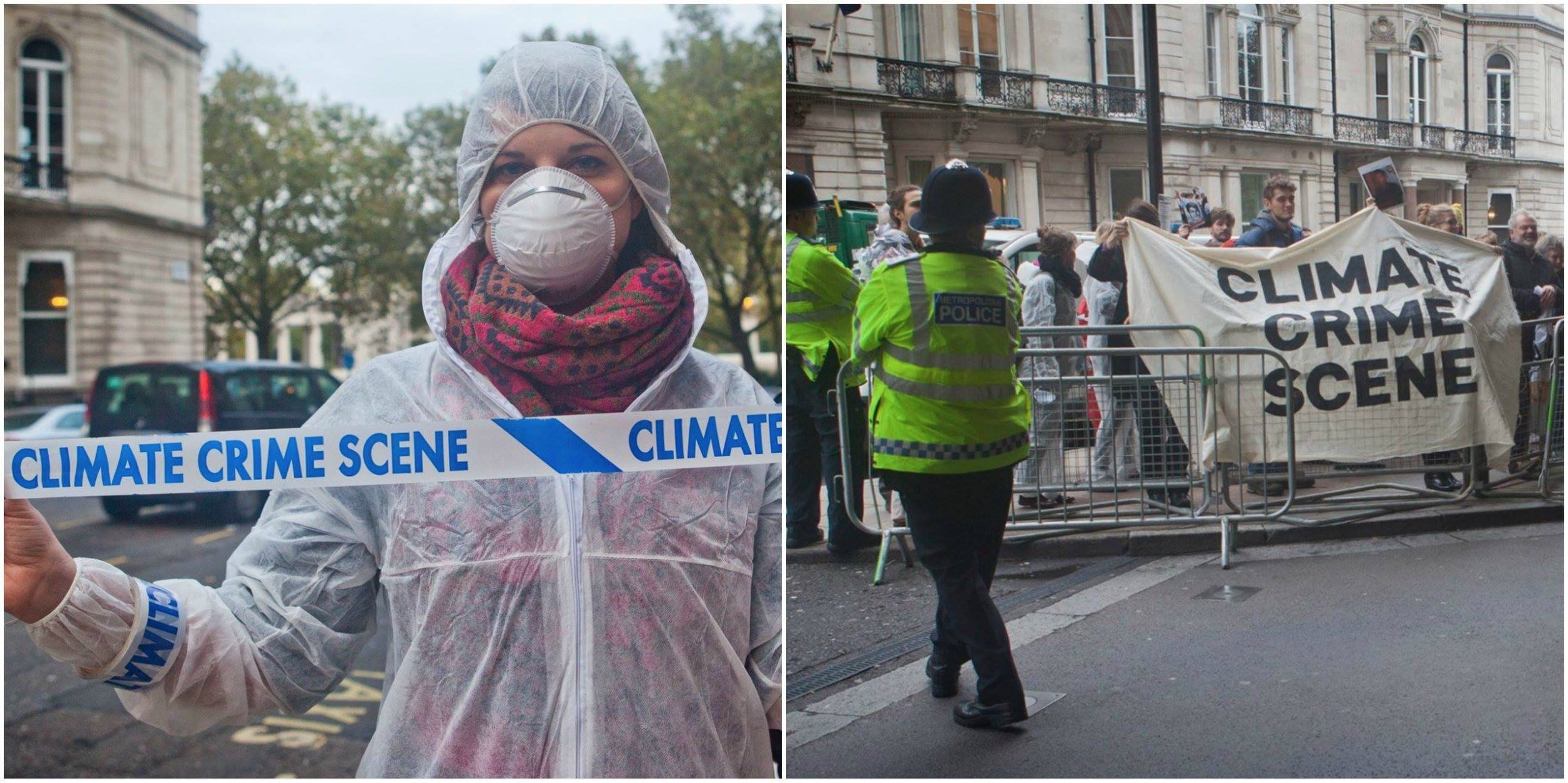 The New York Times has dropped its long-running
sponsorship of its highly lucrative Oil And Money
conference,
ceding to rising pressure from climate activists. The decision was
announced on
Twitter by
the New York Times Climate team led by editor Hannah Fairfield. The
tweet included a statement from the Times’ communications
SVP, Eileen Murphy:
The New York Times has dropped its long-running
sponsorship of its highly lucrative Oil And Money
conference,
ceding to rising pressure from climate activists. The decision was
announced on
Twitter by
the New York Times Climate team led by editor Hannah Fairfield. The
tweet included a statement from the Times’ communications
SVP, Eileen Murphy:
The New York Times has decided to end its relationship with the Oil & Money conference.
Over the last several years The Times has significantly expanded its reporting on climate change and its impact, as well as broader investigative and explanatory coverage of energy and environmental policy. We have a large team focused solely on the topic and in the last year alone we’ve traveled to every continent to document the effects of a warming planet.
While our partners in Oil & Money, Energy Intelligence, have always maintained high standards of independence and impartiality, the subject matter of the conference gives us cause for concern as we continue to invest in these consequential environmental issues. We want there to be no question of our independence or even the potential appearance of a conflict of interest.
We wish Energy Intelligence well as they continue to gather energy leaders, policy makers, and environmentalists to discuss how to sustainably meet the world’s rising energy needs.
The tweet, like much of The Times’ climate coverage even to this day, avoided directly stating that the fossil-fuel industry causes global warming.
Separately, Energy Intelligence announced the conference will be “renamed the Energy Intelligence Forum” because “the energy industry is changing, and as our conference program has evolved in recent years to address the challenges of climate change and the energy transition, we felt that our conference needed a new identity and a new mandate.”
The London-based conference, which gathers the world’s top oil executives, has been the target of protests for years. In 2014, climate activist Tamsin Ormond stormed the conference, shouting “Oil is fucking our future!”
In 2015, members of Fossil Free London
(@DivestLondon) staged a protest
outside the conference, holding the banner “Climate Change: No Time To
Party”:
 and blocking the award ceremony celebrating
ExxonMobil CEO Rex
Tillerson:
and blocking the award ceremony celebrating
ExxonMobil CEO Rex
Tillerson:
 The protesters mockingly threw cash at the
executives
as they entered the “Petroleum Executive of the Year” gala:
The protesters mockingly threw cash at the
executives
as they entered the “Petroleum Executive of the Year” gala:  Two of the protesters superglued their hands to the
doors of a side entrance, and others tried to infiltrate the gala.
Two of the protesters superglued their hands to the
doors of a side entrance, and others tried to infiltrate the gala.
In 2016, the Divest London protests
continued,
with activists declaring a “Climate Crime
Scene”:

The protests at the conference continued in 2017 and 2019.
In June 2019, Extinction Rebellion staged sit-in protests at The New
York Times headquarters in
Manhattan,
blocking traffic on Eighth Avenue and scaling the
NYT building with a large “Climate Emergency –
Mass Murder” banner:
 About 70 protesters were
arrested.
About 70 protesters were
arrested.
At the time, The Guardian’s Amanda Holpuch reported that The New York Times responded: “There is no national news organization that devotes more time, staff or resources to producing deeply reported coverage to help readers understand climate change than The New York Times.”
The New York Times did not report on the protest, which was covered by many other outlets.
The June protest focused on the tenor of The New York Times’ climate coverage and its acceptance of fossil-fuel advertising, not its sponsorship of the Oil & Money Conference. However, Extinction Rebellion NYC soon began to focus on the Oil & Money Conference, including it as a target in their August 7th die-in at Times headquarters and in an August 30 video appeal to the Times.
 The New York
Times has for years also hosted a high-priced global summit for the
chieftains of Big Oil.
The New York
Times has for years also hosted a high-priced global summit for the
chieftains of Big Oil.